This Friday at the Sheraton Hotel in Edinburgh, the Law Society of Scotland will hold its annual conference .. and as one can expect, there will be little on offer for those inside & outside the legal profession who would rather reform Scots justice than leave it in the dark ages.
Indeed, the focus of the Law Society’s ‘agenda for self preservation’ seems to be that of maintaining a hands on control of not only Scotland’s beleaguered legal profession but also on the justice system itself, where elements of the Law Society do indeed seem to be bent on stifling reforming legislation and hindering any prospect of totally independent regulation of an opened legal services market.
Carefully selected speakers will be appearing before the lawyers gathering .. sadly most of them ‘yes men’ to the Law Society’s aims for the future, which does not seem to include much on the interests of the client or public at large.
As I have recently reported, and many have observed themselves, the Law Society seems to be playing a game where they are claiming to support opening the legal services market while qualifying their support with conditions of being the sole regulator of any opened legal services market .. thus continuing the decades old problem of lawyer regulating lawyer, which as we know has failed the public in every way possible.
Notably, one of the chosen speakers is the Justice Secretary himself, claiming that people or businesses will bring their legal business to Scotland. However, with Mr MacAskill’s current attitude towards cleaning up the image of the legal profession, and the sleaze scandal of the appointments to the supposedly independent Scottish Legal Complaints Commission … it would of course be an insane choice for anyone to choose to do their legal business in Scotland under the unsafe & insecure business terms offered by members of the Law Society of Scotland.
Kenny MacAskill – time to address the public interest instead of lawyers interests ?
Anew page needs to be turned, and the legal profession has to wake up to the fact that the Law Society itself is not fit to lead it, based on it’s past performance as the profession’s governing body and ‘defender’ of the client’s interests.
If that new page for everyone is to be turned, regulation of the legal profession must in it’s entirety be taken away from lawyers, and the many regulatory sins of the past addressed and cleaned up under the umbrella of truth & reconciliation. Its not such a hard step to take, and it would benefit everyone, from the public to the profession and even the justice system itself.
Without further ado, read on for the Scotsman’s version of events for this coming Friday. If you feel like going along .. it might be fun ? and don’t forget tomorrow’s Law Society AGM at the Hub, Castlehill, on the Royal Mile at 10.30am for the usual round of lawyers congratulating themselves on ‘injustice well done’ …
What does the future hold for Scottish law?
Ahead of the Law Society’s annual conference, we asked 20 movers and shakers what lies ahead in the next five years
IT IS a time of fundamental change for the legal profession in Scotland. For so long it has been an immovable pillar of tradition in Scottish society, but recent debate has called into question the very way in which firms have operated for many years.
The state of flux for solicitors is not helped by uncertainty over the devolution settlement and simmering discontent over the level of legal aid. Public access to justice and alternative business structures for solicitors’ firms are likely to be hot topics when the Law Society convenes its annual conference at the Sheraton Grand Hotel this Friday.
Led by a keynote speech from acclaimed legal author and journalist Richard Susskind, the conference will consider the future of the profession both in Scotland and abroad.
Ahead of the conference, The Scotsman spoke to a wide range of people within the profession. We asked them to give us their thoughts on where Scottish law would be in five years. In this, the first part of a two-part special, we hear from Justice Secretary Kenny MacAskill, as well as from those practising a wide range of legal disciplines across the country.
Some address the alternative business structures proposals, some address technology, others prefer to look at the profession as a whole. All of them provide reasoned and thought-provoking arguments. The debate continues next week.
In addition, Richard Susskind himself speaks to our reporter Jennifer Veitch ahead of his keynote address on Friday.
KENNY MacASKILL, CABINET SECRETARY FOR JUSTICE
AS JUSTICE Secretary and a former lawyer, I am committed to working with the legal profession in the spirit of co-operation and partnership. That is why I made it clear I wanted the profession to lead reform rather than presenting them with a blueprint for change. Both the Law Society and the Faculty of Advocates have consulted their members and produced proposals. I will be considering them and will outline the way forward for the profession within the next few months.
This is an exciting time. There will be great benefits for those who take advantage of the opportunity to grow their businesses. But it is also a time of challenges and I recognise that for some, their businesses will be under pressure. We will do what we can to support the availability of high-quality, competitive legal services for all who need it.
The legal profession in Scotland has served us well for centuries and will continue to do so. My vision is for Scotland to have a strong, independent legal profession that is appropriately regulated to ensure the public is protected and quality is maintained. Scottish firms will compete internationally and businesses will choose Scotland as their destination of choice.
NEIL STEVENSON, HEAD OF STRATEGIC CHANGE, LAW SOCIETY OF SCOTLAND
WE PROBABLY all agree that technology will change the way we deliver services in the future, but I would contend that an era is starting where technology becomes a defining paradigm of our society.
We are entering an on-demand market where only the highly commoditised or the highly personalised will survive, and that applies to the Law Society and legal services as well.
Everything from legal services to gaining a degree is seen as a ‘purchase’ that must meet their requirements and not some standardised model. Flexibility and choice have never been more in demand, and that is a trend that will continue to grow.
Two examples? I see a strong solicitor brand remaining, but one where people work in specialisms with qualifications backed by a sectorised practicing certificate. From the Society, expect to see more podcasts and webcasts providing information and opportunities for CPD, and a more personalised service.
ALAN CAMPBELL, MANAGING PARTNER, DUNDAS & WILSON
IN 2013 lawyers will work quite differently. Even today, information that was previously only available from lawyers is freely available from the web. This is accelerating as search-engine technologies advance. Workflow and automation software will do to the services sector what the assembly line did to manufacturing. We can now do our banking and buy flights, insurance and even vegetables on line. Customers will come to expect the same from legal services.
As a consequence, brand awareness will be more important for professional services organisations. Businesses will promote brands more and individuals less. That said, even the cleverest software only works where there is a process capable of being articulated and replicated. This fits well with services that can be productised but less well for true advice in the sense of exercising judgement. People want advice from people they trust.
Today’s professionals who focus upon advising people, will be tomorrow’s professionals who succeed.
RICHARD KEEN, DEAN OF THE FACULTY OF ADVOCATES.
WITHOUT a willingness to embrace change, the Faculty of Advocates would not have flourished for nearly 500 years. Advocates are acutely aware, however, that a distinguished past provides no guarantee for the future and that the legal profession and the Bar are under intense scrutiny.
An independent referral Bar, with advocates each operating as an independent business provides high-quality legal advice throughout Scotland whether to the clients of a small law firm in Wick or those who consult a large commercial practice in Edinburgh.
The delivery of legal services should be made as simple as possible. An extension of direct access to advocates is inevitable. I have also indicated an intention to review the current prohibition on advocates appearing along with solicitor advocates.
As long as the Faculty is willing to embrace change, I am confident that it will continue to make a major contribution to Scottish life and ensure access to justice for the people of Scotland.
CHRISTINE MCLINTOCK, CONVENER OF THE LAW SOCIETY’S EDUCATION AND TRAINING COMMITTEE.
WHAT might the legal education and training regime look like in five years time?
Our current thinking is that each entrant to the profession should have attained a degree-level, or equivalent, qualification. This need not, however, be exclusively in the field of Scots law, provided that certain core legal knowledge and skills have been acquired. This could lead to more innovation in the provision of legal education, which in turn could offer more choice to students. It would be easier, for example, for a student to combine the study of law with a foreign language or with economics or business management.
We support the retention of a postgraduate course in legal practice and a period of work-based learning but we want to see more integration throughout all stages of the education process. We also want to see, at all stages, a focus on the client’s perspective.
PAUL MOTION, PARTNER IN IP/IT LITIGATION, BTO.
WE ARE still too reliant on paper but reducing its use isn’t the only issue. Better use of IT could be made for litigation support and the way solicitors deal with each other. The Scottish Court Technology Forum agreed in 2007 that PDF files were best for paper-free litigation. Some judges are OK with this. Others worry about “best evidence” where the original has been destroyed.
Europe is pushing for a chipped identity card for all EU lawyers. Lawyers from one jurisdiction could, in theory, log on to courts in another country and file documents remotely. Then there is the PenalNet project, a web platform for secure communication between EU criminal lawyers. Any criminal lawyer on PenalNet will have a directory of criminal lawyers throughout the EU and can establish encrypted communication with them.
The social networking mindset will spill over into the law. We will see the emergence of a legal Wikipedia to which lawyers and clients will contribute. Also the BAILII website will expand as it so rightly ought to: free UK law reports for all!
PROFESSOR STEWART BRYMER, PROPERTY LAW SPECIALIST, THORNTONS, DUNDEE
THE Facebook generation will expect to do business differently and our firms will have to adapt. So what will the practice of conveyancing be like in five years? Put another way, if we started today with a clean slate, would we do things as we do them now? I envisage that transactions will be able to be carried out in a paper-free environment and contracts will be concluded electronically. The transfer of title will also be effected using an intelligent case-management system linked to a fully automated e-registration system. In essence, a full e-conveyancing package will be available accessing a national database of all relevant information about the property being purchased. Pie in the sky? I do not think so. Some of the technology is available now and the rest is under development. The question is, who will provide the service? Does this spell the end for those who practise conveyancing? Not necessarily so. We must evolve with these developments, embrace change and be prepared to do things differently.
PHILIP RODNEY, CHAIRMAN, BURNESS
IT’S an interesting time for the legal profession in Scotland, particularly as, looking forward five years, it may be that the political backdrop will mean there are more devolved issues that we have to advise on. The legal profession has to achieve a balance in Scotland so that, as a jurisdiction, it is no less attractive a place to practice than England while ensuring that the high standards and integrity that characterise the profession here are not lost.
The term “solicitor” is a kite mark of excellence and our starting point must be to maintain that and make sure the quality for which it stands is not diluted.
While I have no problem per-se with a non-lawyer owning equity in law firms, we must avoid conflicts of interest. There could be some plusses in widening the equity. One could see the benefits of share-incentive schemes benefiting non-lawyers. However, if, for example, a financial institution were to own part of a law firm, could it act independently where that institution has an interest in the provision of its services to the client?
‘Europe is pushing a chipped identity card for lawyers…’
CATH KARLIN, HEAD OF FAMILY LAW, HBJ GATELEY WAREING
THE future of family law in Scotland is bright. There is at last recognition for same-sex couples, although not yet in relation to adoption. However, this looks likely to be rectified by the turn of the year.
Both clients and lawyers are also much more aware of the psychological effects of divorce/separation. Family lawyers have changed their approach, and many are members of the Comprehensive Accredited Lawyer Mediators and the Scottish Collaborative Family Law Group, promoting a sensitive approach to dispute resolution. Lawyers who belong to these organisations have had to rethink the way they approach cases. They understand that to resolve disputes successfully is to aim for an enduring peace, as opposed to the imposed “quick fix” that court tends to offer.
The area of family law is arguably one of the most important, as the fallout has such a massive social impact. Five years from now, alternative dispute resolutions, such as mediation or collaborative law, will be the norm.
ALISTAIR MORRIS, CHIEF EXECUTIVE, PAGAN OSBORNE
FIRST and foremost, I believe that the legal market will actually be a very different place in three years’ time.
In my view, it is better to plan for the changes required by 2011, and to see them as a significant stepping stone to where you want your law firm to be in the longer term.
Freeing up the structure of Scottish legal firms will allow far greater flexibility, particularly in terms of succession planning and providing many more opportunities and avenues for solicitors to take their businesses forward.
These opportunities have quite simply not been open to the profession before.
On the one hand, this could lead to many more mergers and acquisitions of legal firms.
However, on the other, the braver and more pioneering organisations in Scotland, this could mean anything from joint ventures to even franchising their brand and business operation.
and if you want a little antidote to that bout of spin from the Law Society, here’s a story from the Sunday Mail, showing that sometimes, the less lawyers there are .. the faster things run !
Lawyers’ protest backfires as court runs quicker without them
May 18 2008 Exclusive by Campbell Thomas
A WORK-TO-RULE protest by lawyers flopped when their court ran quicker without them.
Briefs refused to take custody cases at Kilmarnock Sheriff Court in a bid to cause chaos on one of the busiest days of the year. They are fighting to keep their £60-an-hour fees paid by the public in Legal Aid cases.
But two solicitors obliged to work whisked through more than 40 cases in two hours less than normal. One lawyer who defied the protest during the local bank holiday weekend accused his colleagues of greed.
Neil McPherson said: “When I look at my colleagues and their top-of-the-range cars, the houses they live in, the holidays and meals they talk about and all the rest of it, then they refuse to do their professional duty, the only common denominator is greed.
“We have been given a position in society and I feel very privileged to be a lawyer. It’s an appointment that is well reimbursed financially. But I also have a duty to my clients to do my best for them. “When workers go on strike they give up their pay on a point of principle but all these lawyers did was disrupt the court system and make sure they didn’t lose a penny. It’s abominable.
“The biggest irony is that the court ran quicker and more smoothly without them. The 40 plus custodies were processed by 4.15pm with only two duty solicitors. “With that number of custodies the court would normally still be running after 6pm.”
Christine Cockburn, sheriff clerk at Kilmarnock, added: “There was no disruption and we were able to process the cases very quickly.”
The Law Society of Scotland had advised its members not to take action. But its spokesman Oliver Adair admitted they were not employed by the Crown and therefore free to do whatever they saw fit.
He said: “We appreciate there are legitimate concerns about the package. “However the progress we have made is quite extensive and we think there is more prospect of resolution by remaining inclusive rather than seeking confrontation.
“There have been a number of concessions and we are encouraging non-confrontation because the Scottish Government is still listening. “We are pleased that one of our members has followed Law Society of Scotland advice in this regard.”








































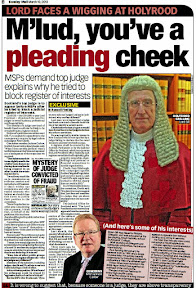
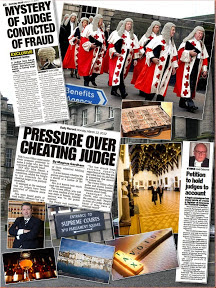
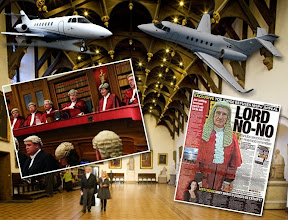


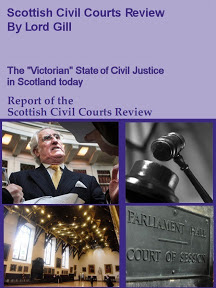
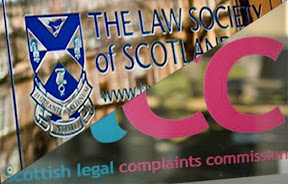



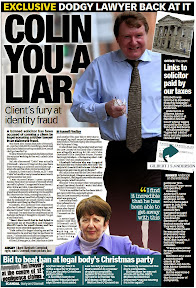
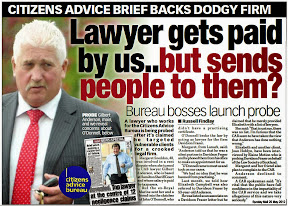



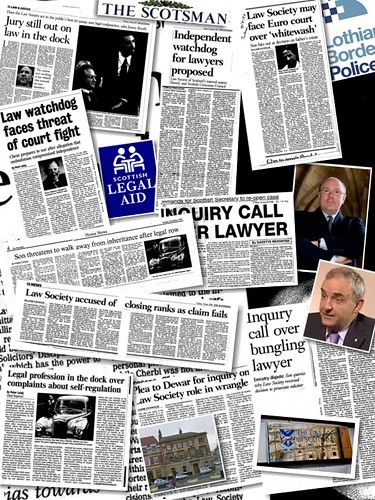




You must be logged in to post a comment.